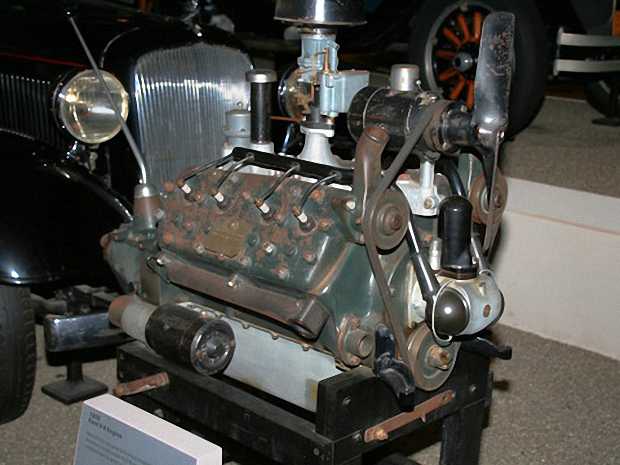
Used Volkswagen Golf V (2003-2008). Buyer's Guide
Content
The fourth generation Volkswagen Golf has won a huge following thanks to its simple, reliable and extremely durable design. However, the moment came when the old model had to be replaced with a new one. Many have discovered that the Golf V is no longer the same. There were solutions that had to be repaired more often and more expensively. We advise which Golf V option to choose so as not to fall into a spending spiral.
While the Golf IV is a car from a previous era, where it's hard to find any design flaws or short-lived fixes, a new one has arrived with the advent of the next generation. Not always bad, but the fact is that some things have changed for the worse.
The most important differences between Golf IV and V:
- New floor plate and new rear suspension - multi-link instead of torsion beam
- Gasoline engines of the TSI and FSI families
- 2.0 TDI engines with unit injectors
- DPF filter in 1.9 TDI engine
- DSG automatic transmission
In a conservative and honest way, the only positive change is the durable rear suspension, which, despite its multi-link design, has low maintenance costs. First things first.
Prettier, more modern and more spacious
Introduced in 2003 Golf V this car is much more modern than its predecessor. The interior also offers more space in the back, which was lacking in the fourth generation. The hatchback trunk has grown by 20 liters and has a capacity of 350 liters. The station wagon offers the same trunk as its predecessor, with a volume of 505 liters. It's impossible not to feel good in this car, mostly due to the nice materials and quality build.
Modernity is also evident in the design of the suspension, which, being completely independent, drives the car even better. Engineers also began to care about the environment, so those responsible for gasoline engines caught in a whirlwind of contractionand the diesel department developed the successor to the iconic 1.9 TDI indestructible unit.
Engines are replacements... for worse ones?
The good old naturally aspirated multipoint injection engines (1.8 and 2.0) have been replaced by direct injection engines. Both supercharged - 1.4 TSI and 2.0 TSI - and without - 1.4 FSI, 1.6 FSI and 2.0 FSI. On paper, everything is stronger and more economical, in practice, after a few years it turned out that they were more or less problematic.
FSI engines can be considered quite safewhich, despite direct injection and rapid accumulation of deposits, still work well. It's good to know that 2.0 FSI was the basis for the first 2.0 TFSI.which is also not a bad engine. Therefore, we can recommend sports versions of the GTI. Smaller 1.4 and 1.6 work worse. From today's point of view, the problem is rather that gas installations are not installed at the FSI than in the higher failure rate of these units.
The biggest problems were with petrol 1.4 TSI with 122, 140 and 170 hp.. I am writing in the past tense, because... Timing or boost faults showed up early, and now the youngest Golf Vs are already more than 10 years old, so the ones that drive are usually corrected. Oddly enough, buying a car with very low mileage poses a greater risk than a car that has already driven about 200 kilometers. km. 122 hp block relatively safe.. More powerful variants have dual boost (compressor and turbocharger), which in the event of failure significantly increases repair costs.
What about diesels? They left the iconic 1.9 TDI unit here, but they are not all good either. Marking BXE (105 hp) indicates problems with weak bushings.. Unfortunately, it's hard to expect complete reliability here and hope that someone has already fixed it. Especially since this engine has general lubrication problems, so there are also worn camshafts.
The BLS variant, generally considered defective, had problems with the DPF system in the first place.. Here, as a rule, you can count on a solution to the problem - unfortunately, the most effective method is to cut out the filter and change the engine program. However, you can, without blinking an eye, recommend a 90-horsepower unit in each version and a 105-horsepower engine with the BJB designation.
With 2.0 TDI diesels, the situation is worse.which were equipped with a similar 1.9 TDI injection system, which turned out to be not the only mistake. There are also problems with the lubrication system. It is comforting to know that those engines that were about to fail or dim have already been replaced or repaired. Today, buying a Golf V with a 2.0 TDI engine is no longer as risky as it might have been 10 years ago. However, it is necessary to take into account the breakdown of the delicate injection system.
It remains in a maze of modern and modernized designs. highly regarded 1.6 MPI / 8V petrol engine. This 102-horsepower unit has a simple design and works perfectly with a gas installation, and its performance can be considered sufficient. It has problems with rpm, throttle or coils, but these are small things compared to the problems of TSI or FSI engines. Just remember to change the timing drive every 90. km. And, importantly, of the engines offered in Europe, only this one and 1.6 FSI and 2.0 FSI were paired with a classic automatic.
With few exceptions, the Golf V was equipped with either a 6-speed manual transmission or DSG Dual Clutch Automatic. If there are no problems with the first ones, then for the second ones the limit of reliable driving is 250 km. However, many of these boxes required repair after 100. km. 7-speed gearbox is the most gentle used with 1.4 TSI engine with 122 hp. The repair of such a transmission usually costs around PLN 4000-6000.
Attention, this is ... the end of the problems!
And on this it is appropriate to end the description of the used Volkswagen Golf, which except for the engines, this is an exceptionally successful and reliable car. Virtually no other area is broken, troublesome, costly. Operating costs are low due to a well-developed replacement market. Everything bad that can happen is under the hood. Corrosion only affects emergency vehicles, and electrics are the strong point of this car. Suspension, steering and brake system are highly wear resistant.
Whether you choose the 90hp 1.9 TDI diesel or the 1.6 8V petrol, you're sure to be satisfied. For those willing to take a little risk, there are more powerful options such as the 2.0 PS 140 TDI diesel. or petrol 2.0 FSI with 150 hp. The Golf GTI is also a good choice.. Power from 200 to 240 hp depending on version. However, I recommend the R32 option only to very conscious users.
